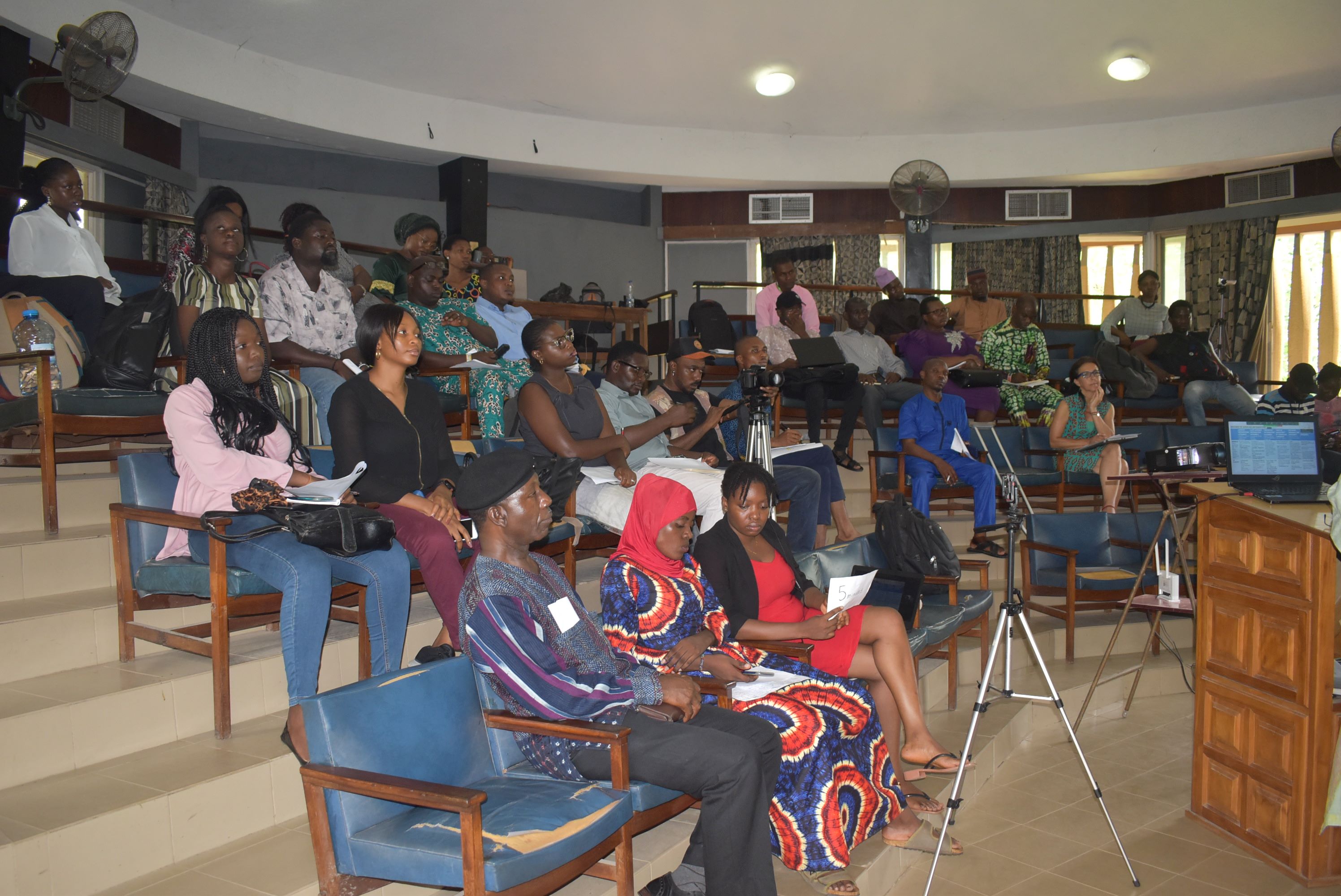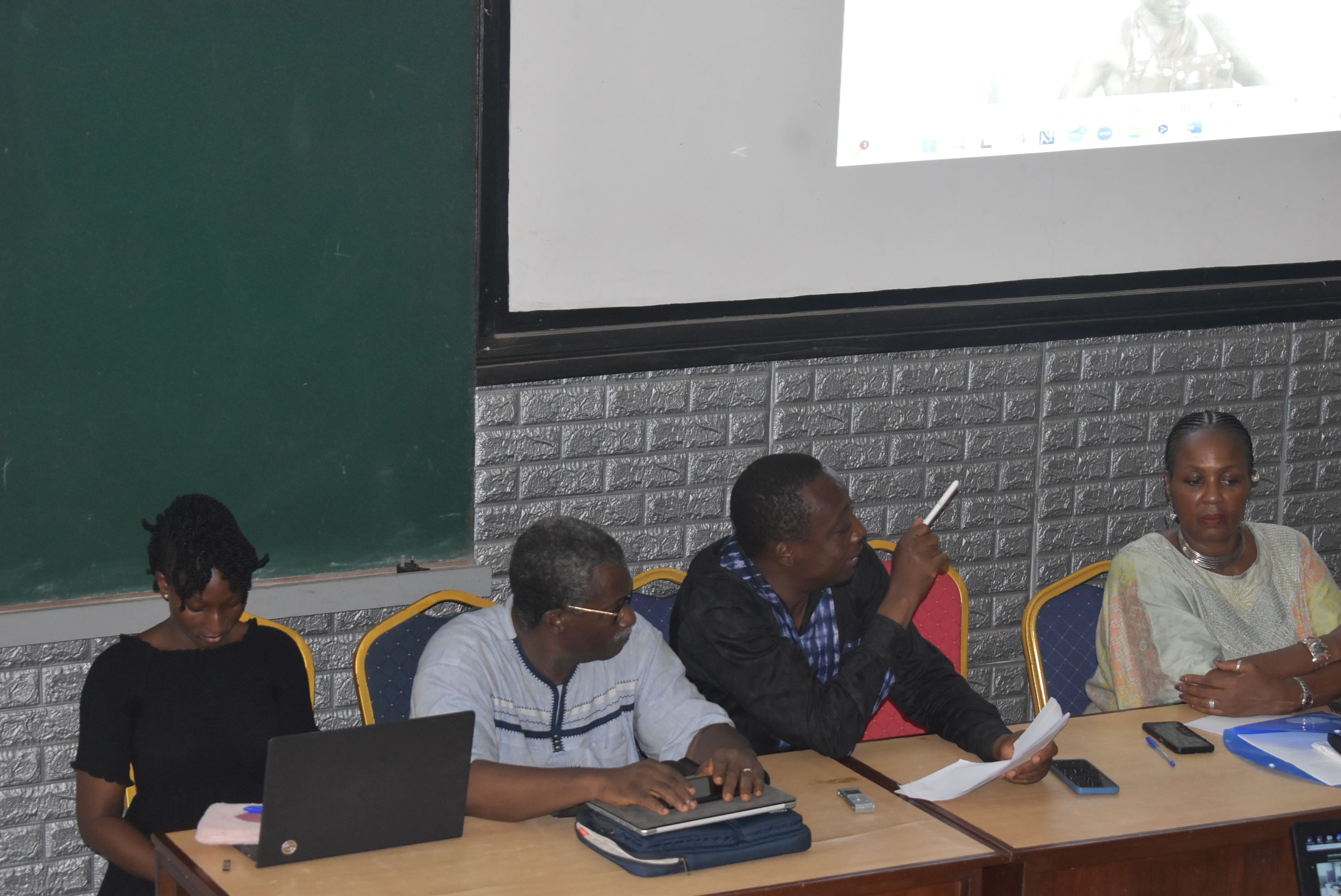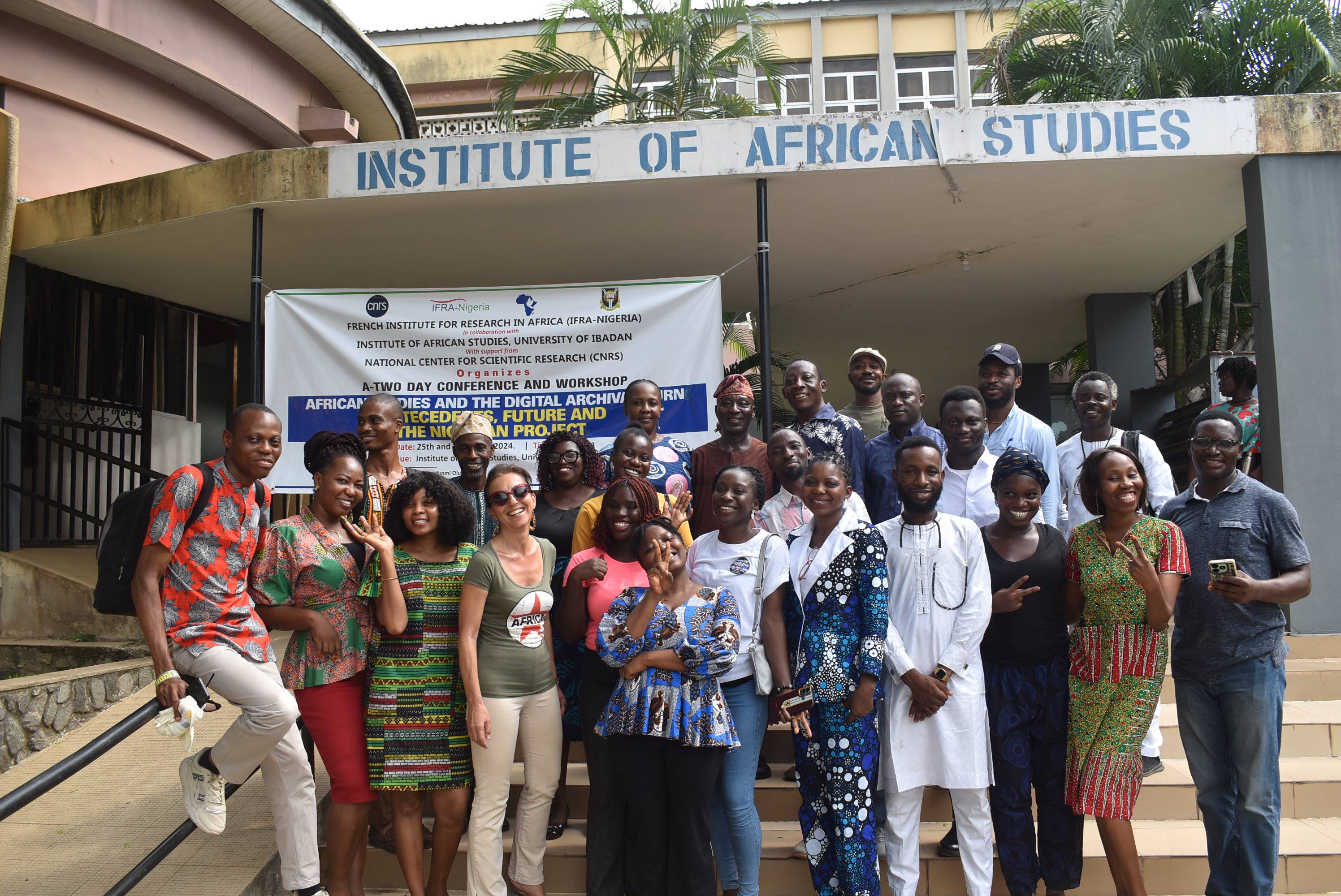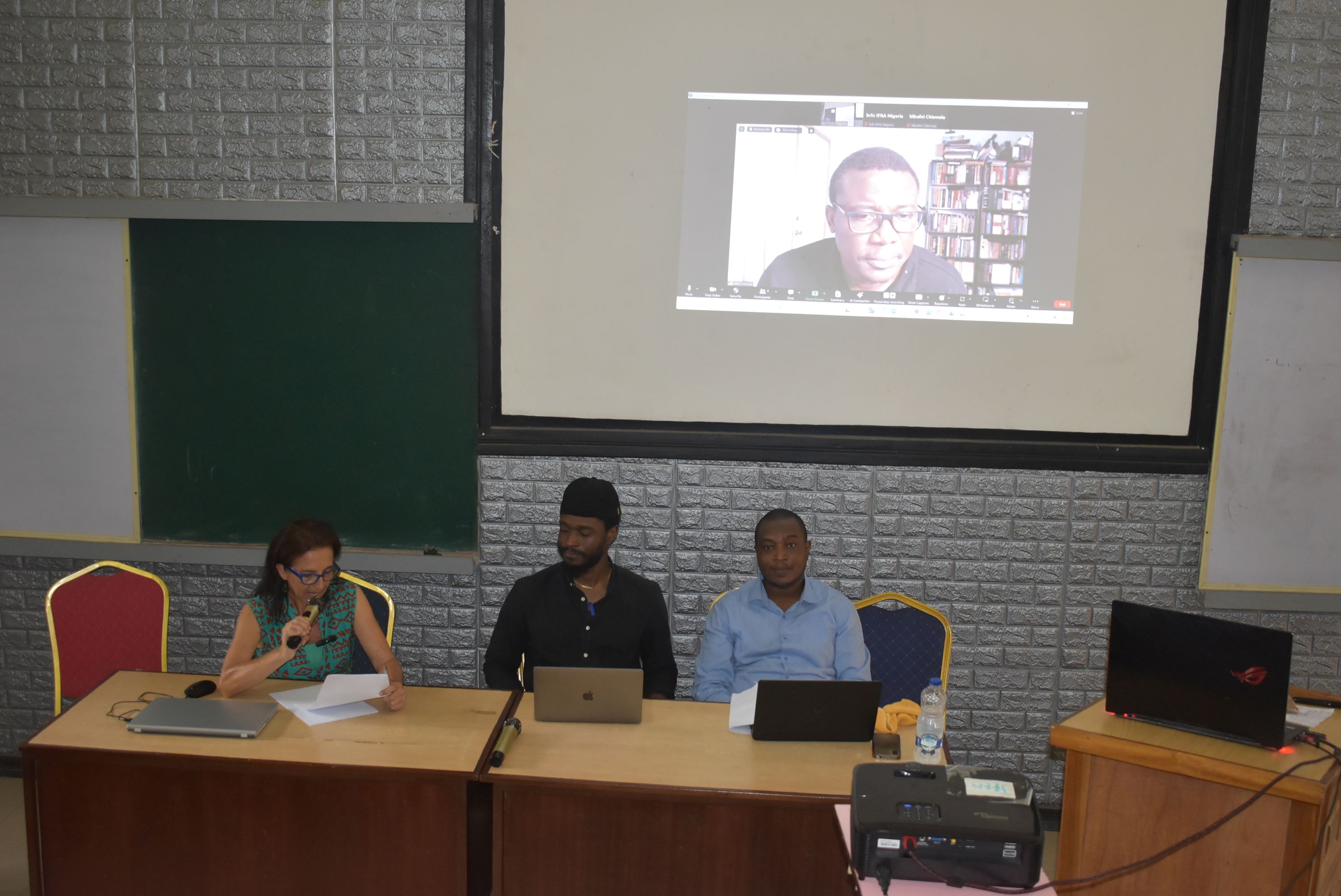Study days: African Studies and the digital Archival turn - Antecedents, Futures and the Nigerian project
 On the 25th and 26th of April, two study days, coordinated by Dr Barbara Morovich and Dr Ayo Adeduntan, took place at the Institute of African Studies. The first day was organized around hybrid conferences while the second one around a workshop. These two days, focused on digital humanities, aimed at fostering conversations regarding the epistemic predicament of inadequate documentation, compounded at the digital turn by the limited visibility of even documented African knowledges that are not born-digital.
On the 25th and 26th of April, two study days, coordinated by Dr Barbara Morovich and Dr Ayo Adeduntan, took place at the Institute of African Studies. The first day was organized around hybrid conferences while the second one around a workshop. These two days, focused on digital humanities, aimed at fostering conversations regarding the epistemic predicament of inadequate documentation, compounded at the digital turn by the limited visibility of even documented African knowledges that are not born-digital.
This is one of the various reasons that several intellectual knowledge bodies on the continent have sometimes not been continuous from the very distant past; their documentation for the Africans of the present and the future has not been prioritized.
The global redefinition of human mobility and interaction impelled by COVID-19 about four years ago has further drawn attention to the value, consequences and risks of virtual interaction. In research and pedagogy especially, attention has been called to the prospect of exploiting Digital Humanities (DH) not only as a way of reading digitally produced culture but a new method of circulating knowledge formally.
Now, the generic discourse of “Global-North-versus-South digital divide” which had earlier concentrated on the uneven opportunities between the less developed nations (the “South”) and the technologically developed ones (the “North”) has shifted to the ways that societies and individuals, through creativity and subversion, should begin (and have indeed begun) to navigate the divide.
In Nigeria, some recent initiatives like the Digital Archive of Sound and Vision (Institute of African Studies, Ibadan) and Digital Technology at the Service of Nigerian Heritage (IFRA-Nigeria in collaboration with Nigerian stakeholders) represent familiar praxes of intervention. Their common western funding source, however, queries the will to independence, alterity and agency.
Below you will find the program of these two study days and summaries of the discussions that they sparked.
9.15 AM – 12: First Table
Moderator: Ayo Adeduntan Institute of African Studies
- “Digital Archives, Knowledge Production and the Decolonial Studies Project” Dele Layiwola Institute of African Studies
- “Ifa, Artificial Intelligence and Interrogation of Indigenous African Language Data” – Tunde Adegbola African Languages Technology Initiative (Alt-i)
- “Prospects and Challenges of Automatic Indexing of Ifa Corpus” – Deborah Ojo TIWA Digital and Archival System
- “Significance of Open Access Information Sharing for African Development” – Rachel Titilayo Leslie African Historical Society (AHS)
During the first table, Prof. Layiwola gave an insight into the digitization of African traditional practices for preservation. Dr. Adegbola and Miss Ojo discussed the use of artificial intelligence to input the correct Ifa corpus for digitization and reference purposes as the human indexing has a lot of limitation. Dr. Leslie gave a detailed illustration of how African information travelled within and outside the continent before the European invasion and partitioning of Africa in 1884. She stressed the need to digitize repatriated information instead of keeping them in museums and old scholarship center such as Timbuktu where they risk rot and depreciation. All of the speakers explained that, though Africa will get aid from the outside, the onus rests on Africans to be fully involved in preserving their heritage through the digital archiving. There were also debates regarding the adequateness of putting information that should be gotten through an initiation process on a digital archive accessible to the public.

2 PM – 5 PM: Second Table
Moderator: Barbara Morovich IFRA-Nigéria
- “Building African Studies Digital Archive of Sound and Vision: Challenges and Futures” – Tosin Orangun Developer and IT Consultant
- “Protecting the Archives of Political Activists to Write Another History of Nigeria” Sa’eed Husaini Centre for Democracy and Development
- “Saving Endangered Heritage of the World’s Margin” – Rachel Deblinger University of California, Los Angeles, and Vincent Hiribarren, Kings College
- “African Digital Archive the Double-Bind of Sustenance and Open Access” – Kola Tunbosun Writer and Linguist
The discussion at the second table centered around how to gather endangered documents to archive them digitally. It evoked the limitations of setting up digital archiving systems in Africa, the economic implications, the level of sensitization need to get the public interested in keeping records that are considered important, the current efforts that are being made to digitize endangered records, the reluctance of affected individuals and families to submit their records to digital archives for public use. Some participants expressed the need to restructure the Nigerian history curriculum to input social awareness into young minds which would spur them into concurrent preservation of their heritage for the betterment of the society.
On the 26th a workshop titled: archives and their (Meta) data took place at the digital studio of the African Studies Institute. The workshop exposed librarians, archivists and other trainees to digital archiving methods. The workshop also exposed the trainees on the various methods of classifying information, the use of tools for the digital preservation of information.



Social Media
Mailing List